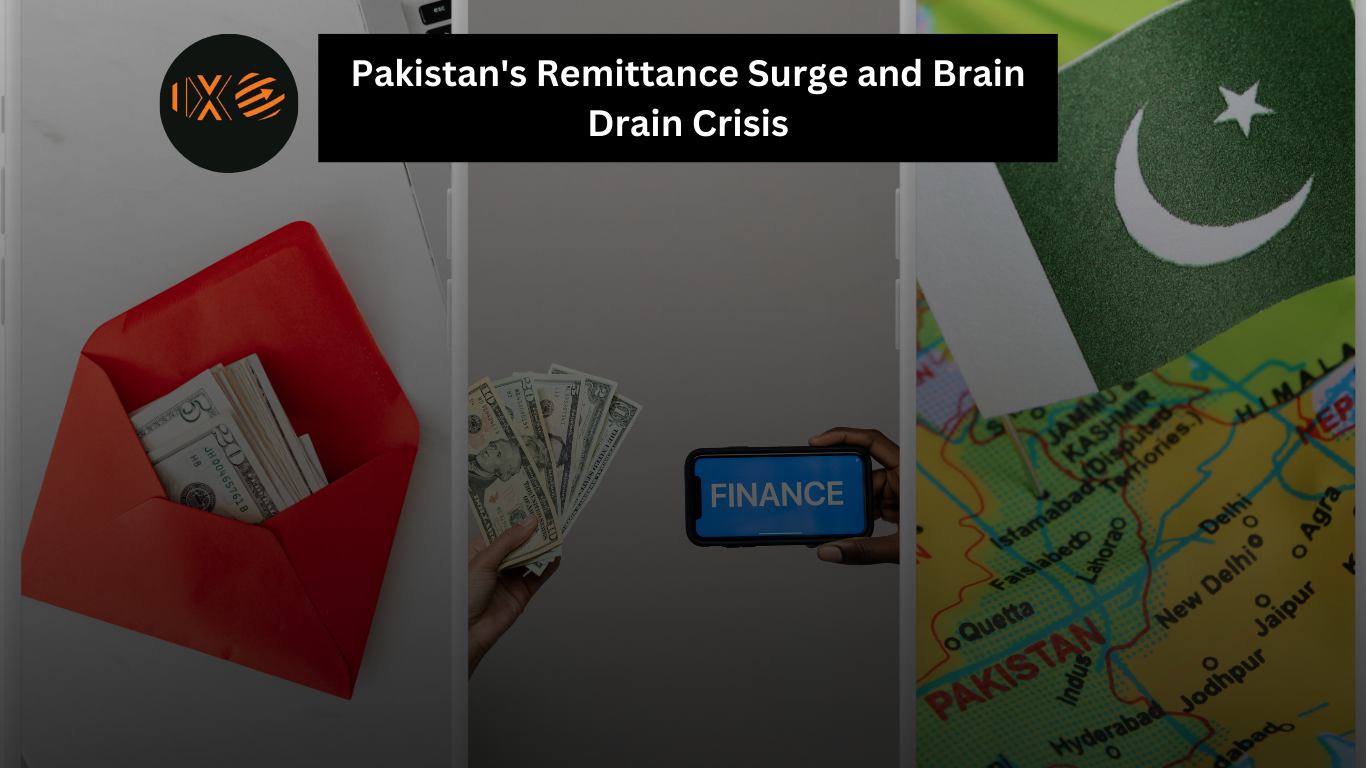Discover how Pakistan’s remittance surge benefits the economy but fuels brain drain, risking long-term growth. Learn more about this complex dynamic.
Pakistan’s Remittance Surge: Economic Relief Amidst Challenges
Pakistan’s remittance surge has become a double-edged sword for its economy. While the inflow of remittances provides much-needed financial relief, it has come at the cost of increasing brain drain. Many qualified Pakistanis are now emigrating to seek better opportunities abroad, leaving behind a shortage of skilled professionals.
How Remittances Impact Pakistan’s Economy | Pakistan’s remittance surge
According to the State Bank of Pakistan (SBP), remittances increased by 39% during the first quarter of 2024 compared to the same period last year. This boost has helped Pakistan manage its foreign reserves and ease inflation pressures. However, this benefit may be short-lived if the country continues to lose its skilled workforce at such a high rate. Islamabad Exchange Company also highlights how these remittances provide families with financial stability despite Pakistan’s fluctuating economic climate.
The Brain Drain Effect: Loss of Human Capital | Pakistan’s remittance surge
The rise in emigration, particularly among professionals, presents a concerning trend. Between 2022 and 2023, Pakistan saw a 26.6% rise in the number of highly skilled individuals moving abroad. This brain drain not only reduces the talent pool within the country but also limits Pakistan’s growth potential. As many professionals and technical experts leave, the nation faces a shortage of critical skills that are essential for economic development.
Why Pakistanis Are Using Formal Channels | Pakistan’s remittance surge
A critical factor in the recent remittance surge is the narrowing gap between the interbank and open market exchange rates. With formal exchange rates closer to market rates, Pakistanis abroad are increasingly using official channels to remit money. This shift has decreased the use of informal channels like hawala, saving Pakistan billions of dollars annually. Islamabad Exchange Company has also seen a rise in individuals seeking secure exchange options, thanks to government incentives and a stable exchange system.
Government Incentives: Boosting Formal Remittance Channels | Pakistan’s remittance surge
The government has introduced incentives to encourage remittances through formal banking systems. These incentives have prompted a steady rise in remittance flows, especially from Middle Eastern countries such as Saudi Arabia and Qatar, where a significant portion of remittances originates. This policy shift helps the economy retain more foreign currency, a crucial factor for stabilizing Pakistan’s financial health.
The Risk of Over-Reliance on Remittances | Pakistan’s remittance surge
Economists caution against relying solely on remittances as a stable income source. While remittances temporarily ease economic pressures, they cannot address the root causes driving skilled workers to leave the country. Structural reforms are essential to create a conducive environment for growth and retain talent within Pakistan.
A Call for Economic Reforms to Retain Talent | Pakistan’s remittance surge
Without addressing underlying issues like inflation and lack of job opportunities, Pakistan will continue to lose valuable human capital. While remittances are beneficial, a stronger economic foundation is crucial. Dr. Junaid Ahmed, a Senior Research Economist at PIDE, emphasizes that creating long-term opportunities within Pakistan is key to reducing the brain drain phenomenon. He recommends government policies focused on developing local job markets and improving living conditions.
Conclusion | Pakistan’s remittance surge
The recent remittance surge has undeniably supported Pakistan’s struggling economy. However, this boost has come at a significant cost: a deepening brain drain that threatens long-term growth. While government initiatives have made remittances more secure and accessible, over-reliance on this income source is not sustainable. For a resilient economic future, Pakistan must implement structural reforms to keep its skilled workforce within the country.
Islamabad Exchange Company: Your Trusted Partner in Currency Exchange
Islamabad Exchange Company is your go-to choice for currency exchange in Islamabad. We serve a wide range of sectors, including E9, E11, F11, F-10, F-8, F-7, F-6, F-5, G-5, G-6, G-7, G-8, G-9, G-10, G-11, G-13, H-8, H-9, I-8, I-9, and I-10. Our services also extend to the Blue Area, Rawalpindi, and Peshawar.
We prioritize customer satisfaction and ensure a seamless experience for all your currency transactions. Our services range from traditional money changers to modern foreign exchange solutions. If you’re looking for money exchange near you, our branches in the Blue Area and F-10 are conveniently located. We offer competitive rates for a variety of currencies, including USD to PKR, GBP to PKR, EUR to PKR, SAR to PKR, AED to PKR, AUD to PKR, CAD to PKR, Thai Baht to PKR, Yuan to PKR, Yen to PKR, and Lira to PKR.
Fast, secure currency exchange at competitive rates
Real-time rates at https://isbexchangeco.com/
Smooth, transparent, and reliable service
051-2809751-52, 051-2105491
0330-1112227
Quick Links
- Home: Learn more about our services and get real-time updates on exchange rates.
- About Us: Discover our mission and commitment to providing secure and competitive currency exchange services.
- Contact: Reach out to us with any queries or for assistance with your currency exchange needs.
- Blog: Stay updated with our latest articles and tips on currency exchange and financial management.



